Perfect Competition Market Structure The term

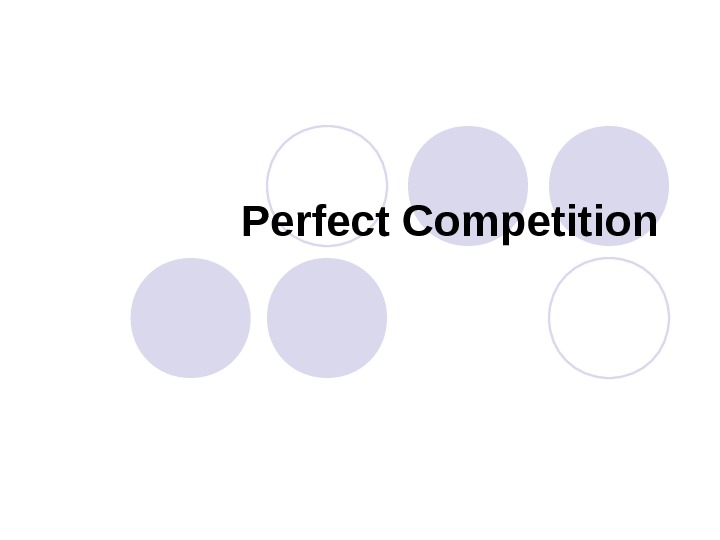
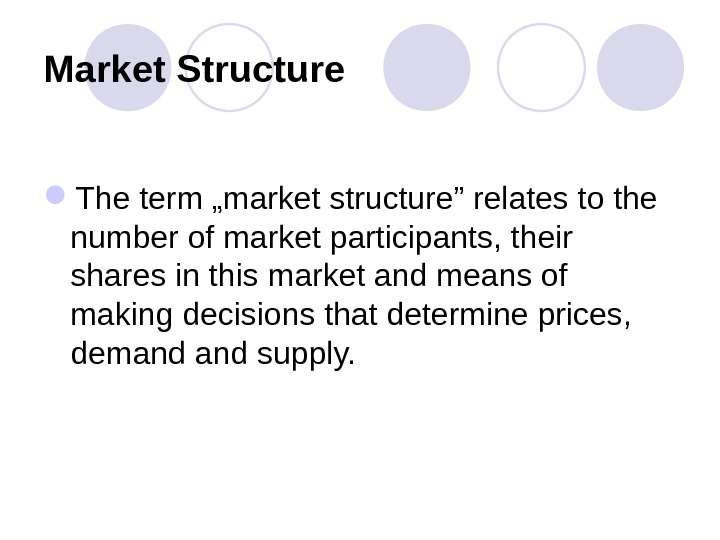
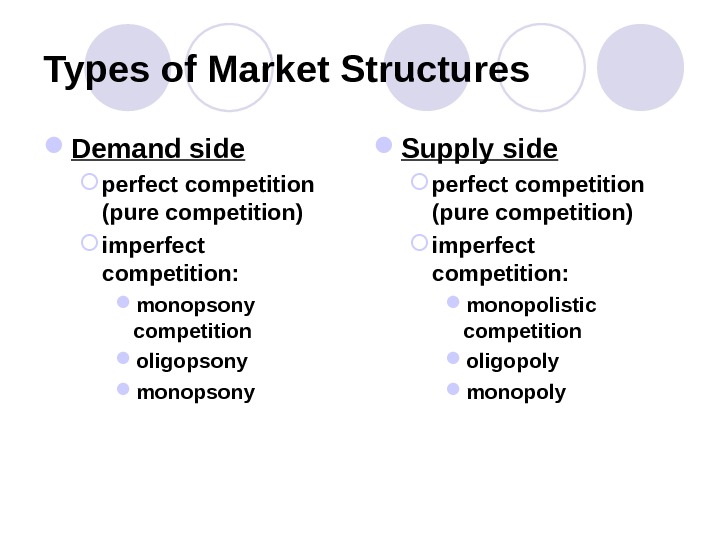
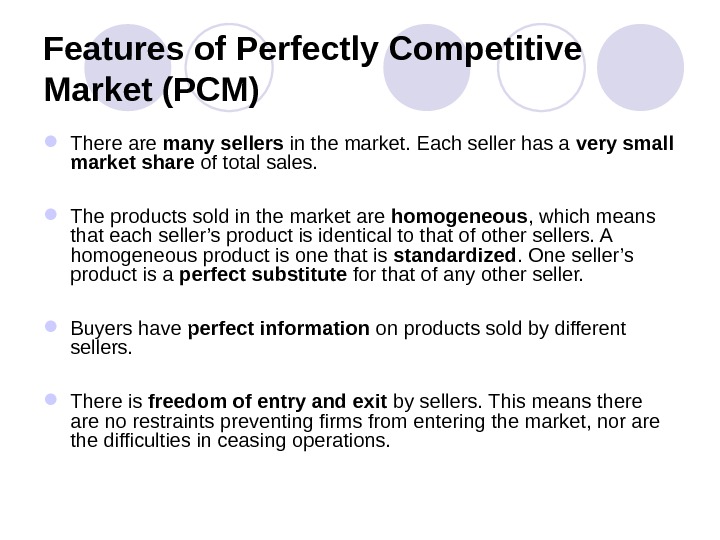
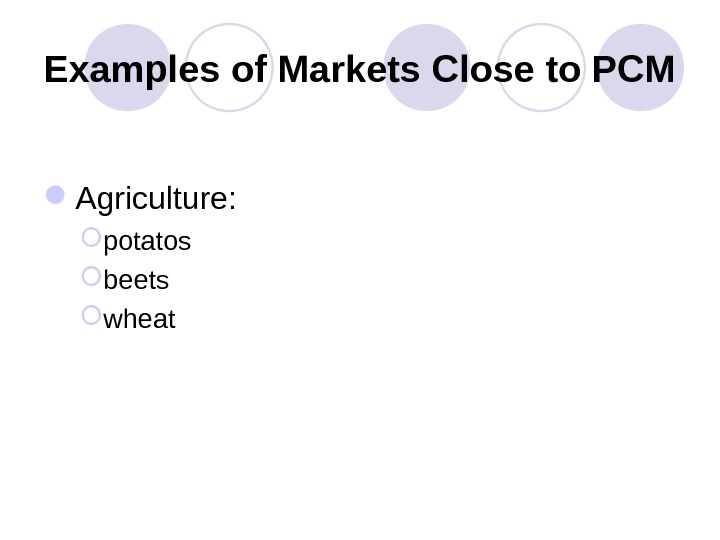
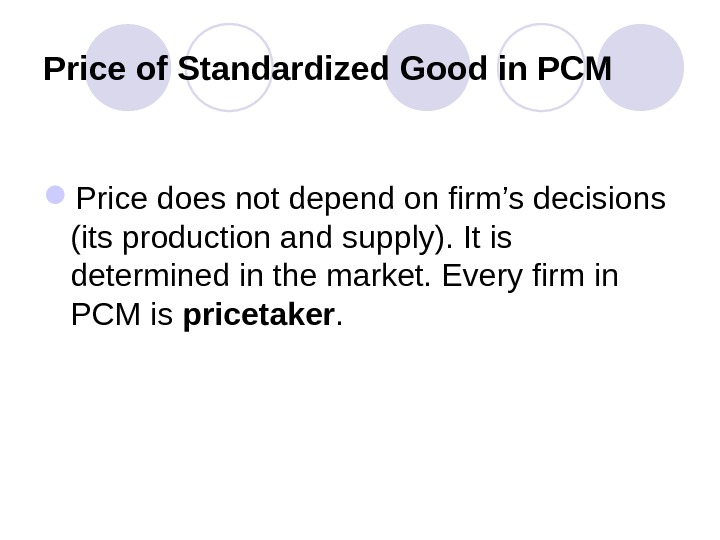
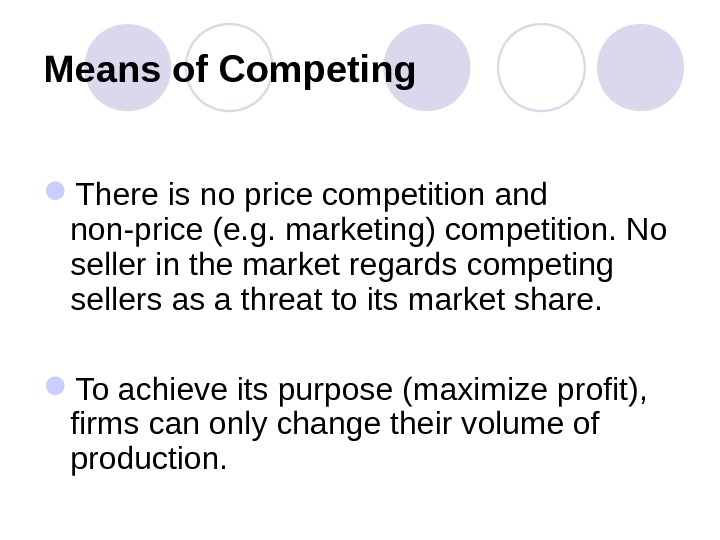
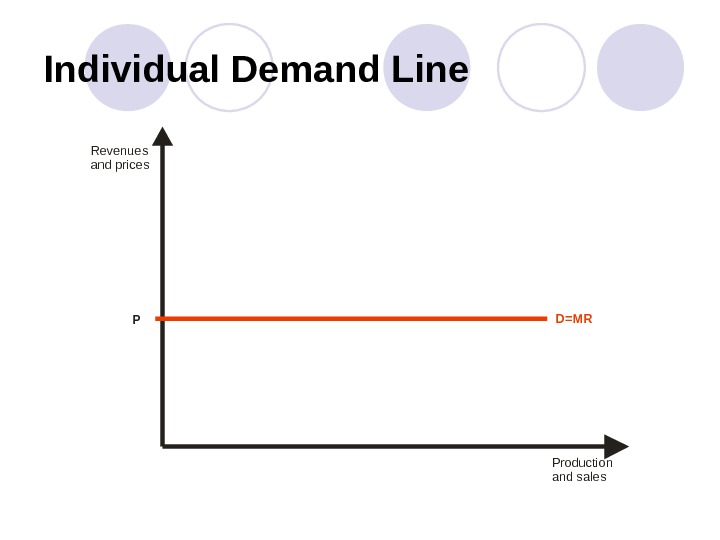
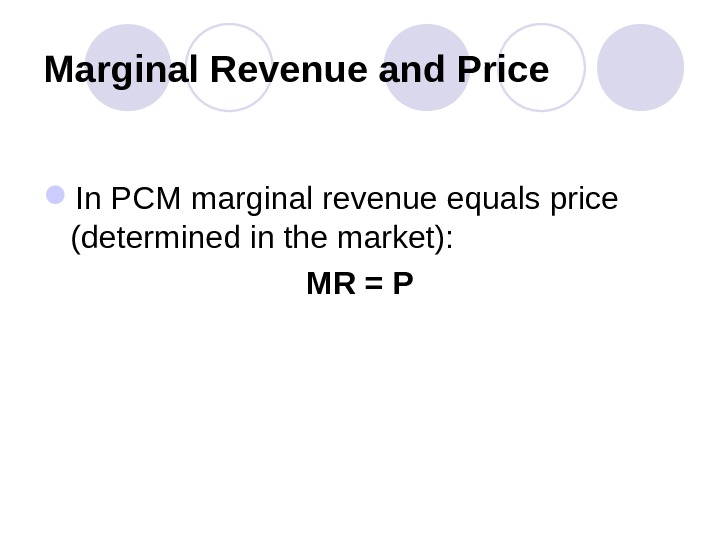
- Размер: 146 Кб
- Количество слайдов: 9
Описание презентации Perfect Competition Market Structure The term по слайдам
 Perfect Competition
Perfect Competition
 Market Structure The term „market structure” relates to the number of market participants, their shares in this market and means of making decisions that determine prices, demand supply.
Market Structure The term „market structure” relates to the number of market participants, their shares in this market and means of making decisions that determine prices, demand supply.
 Types of Market Structures Demand side perfect competition (pure competition) imperfect competition: monopsony competition oligopsony monopsony Supply side perfect competition (pure competition) imperfect competition: monopolistic competition oligopoly monopoly
Types of Market Structures Demand side perfect competition (pure competition) imperfect competition: monopsony competition oligopsony monopsony Supply side perfect competition (pure competition) imperfect competition: monopolistic competition oligopoly monopoly
 Features of Perfectly Competitive Market (PCM) There are many sellers in the market. Each seller has a very small market share of total sales. The products sold in the market are homogeneous , which means that each seller’s product is identical to that of other sellers. A homogeneous product is one that is standardized. One seller’s product is a perfect substitute for that of any other seller. Buyers have perfect information on products sold by different sellers. There is freedom of entry and exit by sellers. This means there are no restraints preventing firms from entering the market, nor are the difficulties in ceasing operations.
Features of Perfectly Competitive Market (PCM) There are many sellers in the market. Each seller has a very small market share of total sales. The products sold in the market are homogeneous , which means that each seller’s product is identical to that of other sellers. A homogeneous product is one that is standardized. One seller’s product is a perfect substitute for that of any other seller. Buyers have perfect information on products sold by different sellers. There is freedom of entry and exit by sellers. This means there are no restraints preventing firms from entering the market, nor are the difficulties in ceasing operations.
 Examples of Markets Close to PCM Agriculture: potatos beets wheat
Examples of Markets Close to PCM Agriculture: potatos beets wheat
 Price of Standardized Good in PCM Price does not depend on firm’s decisions (its production and supply). It is determined in the market. Every firm in PCM is pricetaker.
Price of Standardized Good in PCM Price does not depend on firm’s decisions (its production and supply). It is determined in the market. Every firm in PCM is pricetaker.
 Means of Competing There is no price competition and non-price (e. g. marketing) competition. No seller in the market regards competing sellers as a threat to its market share. To achieve its purpose (maximize profit), firms can only change their volume of production.
Means of Competing There is no price competition and non-price (e. g. marketing) competition. No seller in the market regards competing sellers as a threat to its market share. To achieve its purpose (maximize profit), firms can only change their volume of production.
 Individual Demand Line Productio n and sales. Revenues and price s D=MR P
Individual Demand Line Productio n and sales. Revenues and price s D=MR P
 Marginal Revenue and Price In PCM marginal revenue equals price (determined in the market): MR = P
Marginal Revenue and Price In PCM marginal revenue equals price (determined in the market): MR = P

